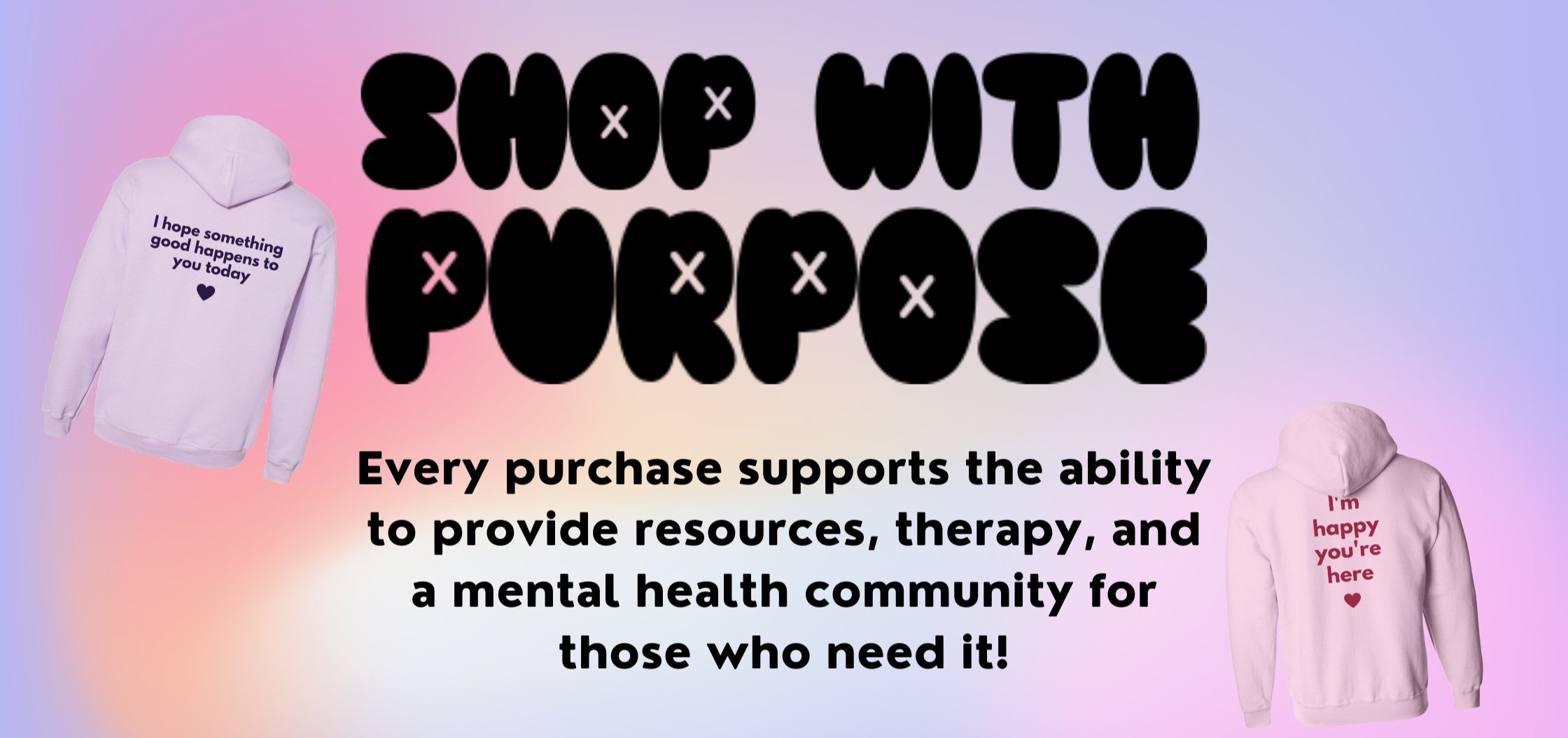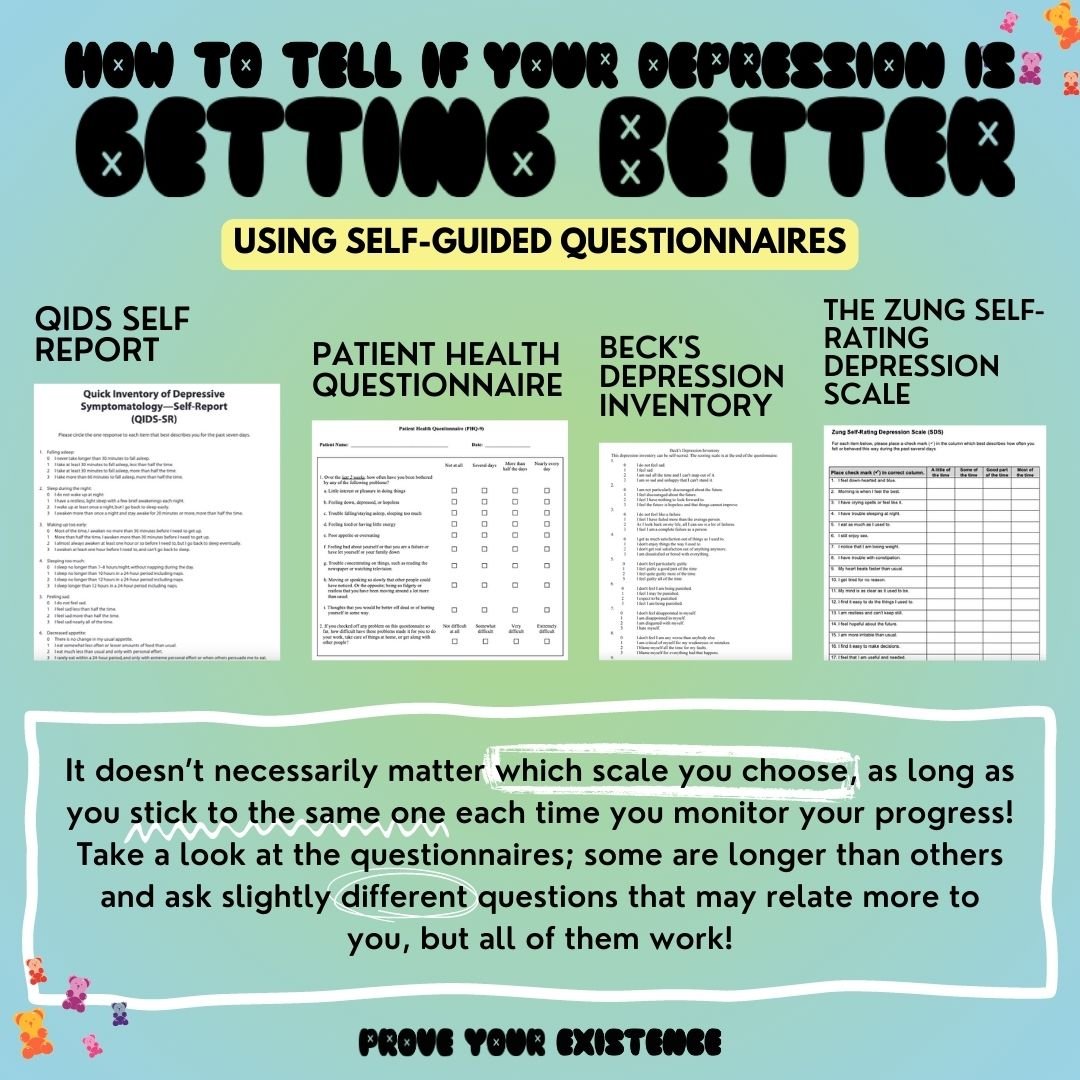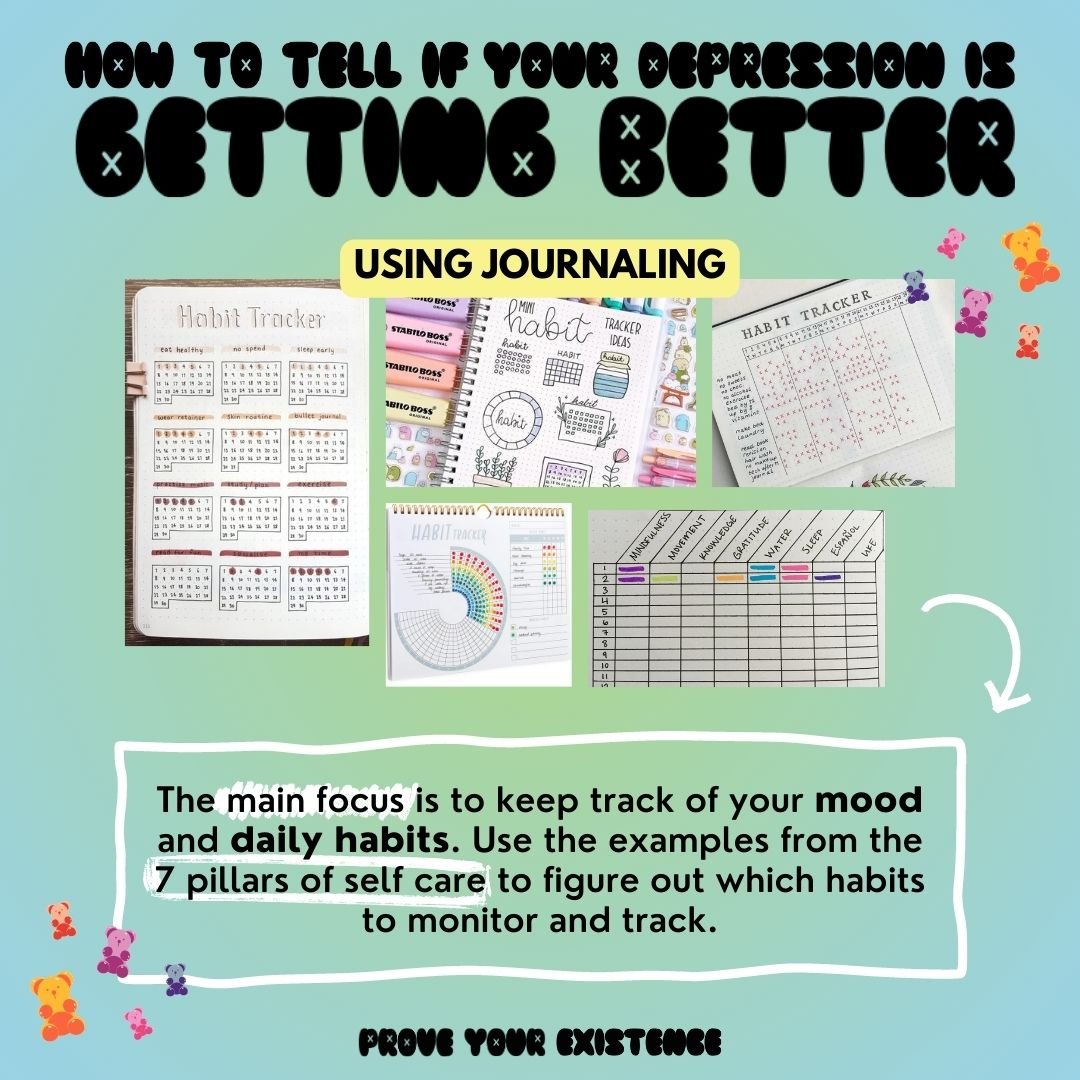How Do You Know if Your Depression is Getting Better?
Why Keep Track of Your Depression?
Keeping track of your depression may be helpful if you want to ensure that your depressive symptoms are improving. Depression is an unfamiliar experience to you and you want to monitor what helps? You just started anti-depressants and want to get peace of mind that it’s working? You want a realistic idea of where you’re at with your mental health? These are all great reasons to monitor your depression!
Monitoring your mental health allows for better insight into which factors impact your depression the most.
What Should You Monitor?
To monitor your depression, look at the seven pillars of self care. These 7 pillars are mental, emotional, physical, environmental, spiritual, recreational, and social. One or more of these pillars are impacted in those who struggle with depression, so it’s important to observe which areas these are for you. As improvements are made in your mental health, you will notice improvements, especially in these areas.
For example, if you notice your mood worsens every time you interact socially, this is something to look deeper into. Are you taking enough time to yourself? Are you burning yourself out from social events? Are you surrounding yourself with the type of people you want to hang around?
You can then use the information you gather from tracking your progress to look into what it is that you’re doing on those days when your mood improves and what you’re doing when your mood worsens. Look for correlations, combinations of habits, and patterns. It may not be obvious right away, and you may also notice that going a day or two with or without certain habits doesn’t impact your mood right away, but going consecutive days does. This is the type of information you’ll get when tracking and monitoring your depression.
If doing the analyzing of the data feels overwhelming, you can ask someone to help you (ie: a family member, therapist, or doctor). Sometimes having an outside perspective and fresh eye can make it easier to spot patterns that you may not be seeing!
How to Measure Your Mental Health Progress with Questionnaires
The easiest way to monitor your depression is through self-guided symptom questionnaires. These monitor the symptoms that are most common with depression and/or measure the intensity of your negative thoughts and how they’re having an impact on your daily life (the seven pillars). These questionnaires can be done on your own and are a reliable way to measure your progress, as these questionnaires are also used by therapists and psychologists!
self-guided tests to help you assess your depression:
It doesn’t necessarily matter which scale you choose, as long as you stick to the same one each time you monitor your progress! Take a look at the questionnaires; some are longer than others and ask slightly different questions that may relate more to you, but all of them work!
progress won’t feel like progress
Progress is NOT linear. What this means is that having sucky days should be expected while improving your mental health. You will be doing really well one day and out of nowhere, feel like you’re back to the start (but you’re not). Expect and prepare for yourself to feel this way. That said, if you’re making progress with your mental health, you should see an upward trend of symptoms improving.
How often should you monitor your depression?
You can monitor your depression as often as you’d like. Most therapists monitor progress on a weekly basis, some on a monthly basis. Monitor as often as feels right to you; my recommendation is every two weeks!
How to Monitor Your Mental Health Progress by Journaling
The main goal with journaling is to track your daily mood and habits. This method requires more energy, but those who enjoy art and creation may find this rewarding and fun. Journaling also happens to be a form of self care - so double win here! You can either use self care printables found online or you can follow your own unique journaling style to monitor your habits and mood.
The key here is that you’re monitoring and analyzing your mood and habits from the 7 pillars of self care. You can even get as detailed as tracking your mood fluctuations throughout the day. There may be periods of your day where you notice dramatic mood shifts that you can pay attention to as well. Mental health can be impacted when there are shifts in self care ie: lack of water intake, lack of movement, not getting enough sunlight, or not getting quality sleep.
With journaling, you can get as specific as you’d like with your goals while also getting extra self care points with journaling. That said, the downfall for some people may be that it feels overwhelming and there’s more of a time commitment than the other options. The goal is to monitor your mental health; not force yourself to add a new task to your to-do list that feels daunting; keep that in mind when choosing the best way for you to track your progress.
How to Measure Your Mental Health Progress with Apps
The benefit of using apps is that its accessible, easy to use, and like journaling with a mental health-analyzing robot friend at your fingertips! These apps have you track both your mood and habits and then it monitors your progress in both to help you get a better idea about your mental health and which habits impact you the most. This requires less work than journaling, is highly convenient, and most apps are free to use. For most people, this is going to be the best option for monitoring habits, mood, and progress!
Signs That Your Mental Health is Improving
Using the above can help you get solid feedback on subtle improvements while also holding you accountable to taking care of your mental health. At some point in your recovery, you’ll begin to notice changes in your mood and habits and overall improved quality of life. Essentially, you should start to notice that you feel better.
Solid signs that your mental health IS improving:
Accomplishing tasks, chores, and goals
Taking on new or old hobbies
Increased energy levels
Improved self image
Less irritability and/or intense emotions
Improved sleep
Self trust in decision making
Improved appetite
Ultimately the biggest signs that your depression is getting better is when you see improvements in the places that depression once impacted (ie: if your depression impacted your sleep, you’ll notice improvements in your sleep, if it impacted your work, you will begin to see improvements in work). Sometimes changes in progress can be more subtle, so tracking will ensure that you’re on the right track - and hold you accountable if not.
Remember that on this journey, there are going to be highs and lows for everyone. Expect that lows are going to happen while recovering and this doesn’t mean that you’re not progressing. Look at the trends. Use the data as a reminder when you start to question yourself on those bad days. Depression has a way of making you question yourself. You’ve got this!
If you find that your symptoms aren’t improving, reach out to your therapist, psychologist, or primary care doctor to get a new action plan. Everyone’s depression is different, so it can take a bit of trial and error to make improvements. Monitoring your symptoms can be a great way to see what is and isn’t working for you!









